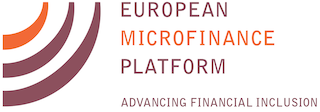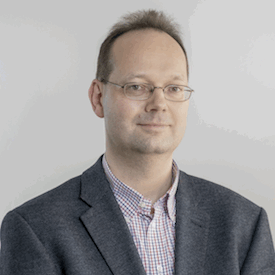 The authors of this paper assess the evolution of the green inclusive finance sector from 2011 to 2019. This encompasses products offered by a range of types of financial services providers (FSPs), including climate insurance
The authors of this paper assess the evolution of the green inclusive finance sector from 2011 to 2019. This encompasses products offered by a range of types of financial services providers (FSPs), including climate insurance
Tag: e-MFP
SPECIAL REPORT: Christoph Pausch on the European Microfinance Award 2023 – Inclusive Finance for Food Security & Nutrition
 MicroCapital: Why was “Inclusive Finance for Food Security & Nutrition” chosen as the topic of this, the 14th edition of the European Microfinance Award?
MicroCapital: Why was “Inclusive Finance for Food Security & Nutrition” chosen as the topic of this, the 14th edition of the European Microfinance Award?
Christoph Pausch: For a long time, it looked like progress in this field would be positive and continuous. But a combination of factors – among them climate change, the COVID-19 pandemic and the global inflationary context – means that progress in food security and nutrition may have stalled, or in fact reversed. According to the World Food Programme, “Conflict, economic shocks, climate extremes and soaring fertiliser prices are combining to create a food crisis of unprecedented proportions.” And the Food and Agriculture Organization reports that the number of people affected by hunger has grown by 150 million since the onset of the pandemic. But the problem is not only one of hunger – lack of access to sufficient food – it’s also one of insufficient quality, meaning poor nutrition, and lack of access to the micronutrients necessary for good health, all compounded by the stress of uncertain supply. There may be 2 billion people worldwide in this category.
There are many sectors that have to play roles in addressing food security and nutrition. And because the people most vulnerable to food insecurity and malnutrition are largely those who are low-income, living in low-income countries and financially excluded, there is a vital role for the financial inclusion
MICROFINANCE PAPER WRAP-UP: “Financial Inclusion That Works for Women,” by Sam Mendelson, Published by e-MFP
 This paper explores model practices in financial inclusion for women through the work of the winner and nine semi-finalists for the European Microfinance Award 2022. Mr Mendelson sorts the lessons learned into three approaches to how financial services providers (FSP) can foster women’s financial inclusion: offering
This paper explores model practices in financial inclusion for women through the work of the winner and nine semi-finalists for the European Microfinance Award 2022. Mr Mendelson sorts the lessons learned into three approaches to how financial services providers (FSP) can foster women’s financial inclusion: offering
MICROFINANCE PAPER WRAP-UP: “The Financial Inclusion Compass 2022,” by Sam Mendelson, Published by e-MFP
 This report outlines global trends and areas of future focus in the field of financial inclusion, based on a survey of 112 professionals from 46 countries, representing financial service providers (FSPs), infrastructure organisations and consultancies as well as researchers and investors.
This report outlines global trends and areas of future focus in the field of financial inclusion, based on a survey of 112 professionals from 46 countries, representing financial service providers (FSPs), infrastructure organisations and consultancies as well as researchers and investors.
In the quantitative section of the survey, participants were asked to rank what they believe to be the most important
MICROFINANCE PAPER WRAP-UP: “A Brief Introduction to WASH for Impact Investors;” by Joana Afonso, Sachin Kumar, Alvaro Ma; Published by e-MFP, Aqua for All
 This report on funding water, sanitation and hygiene (WASH) cites the UN’s Sustainable Development Goal (SDG) 6 – Clean Water and Sanitation – as well as data indicating 3.6 billion people worldwide have limited access to
This report on funding water, sanitation and hygiene (WASH) cites the UN’s Sustainable Development Goal (SDG) 6 – Clean Water and Sanitation – as well as data indicating 3.6 billion people worldwide have limited access to
SPECIAL REPORT: Christoph Pausch of e-MFP on European Microfinance Week 2022, Luxembourg & Virtual, November 16-18
 MicroCapital: European Microfinance Week (EMW) 2022 will be in-person for the first time in 3 years. What can we expect?
MicroCapital: European Microfinance Week (EMW) 2022 will be in-person for the first time in 3 years. What can we expect?
Christoph Pausch (pictured): We’re very excited to be going back to an in-person conference at the beautiful Abbaye de Neumünster in Luxembourg. For the last two years, EMW has been virtual, and we are very proud of how both editions went, but – as I think everyone agrees – an online conference, however professional and comprehensive, can never entirely substitute for meeting in-person. You cannot fully replicate the richness of discussion within a room or the opportunities for exchange, debate and networking that gathering face-to-face allows.
You’ll see some innovations at EMW2022, as we’re taking much of what worked over the last couple of years and incorporating it into the in-person event. Among other things, that means some sessions will be in a hybrid format, so attendees and speakers who cannot come to Luxembourg can take part. Also this year, the conference proper starts on Wednesday at lunchtime, so that our opening will be timezone-suitable for more remote participants.
MC: What range of sessions can attendees choose from?
CP: As always, EMW sessions have been put forward largely by our members and organised across several thematic streams, such as “Financial Inclusion that Works for Women” (the topic of the European Microfinance Award), climate-smart finance, digitalisation and
SPECIAL REPORT: Bancamía of Colombia, Banco FIE of Bolivia, Kashf Foundation of Pakistan Shortlisted for $100k European Microfinance Award on Financial Inclusion for Women
 From the European Microfinance Platform (e-MFP): On the 21st and 22nd September 2022, the Selection Committee for the European Microfinance Award 2022 (EMA 2022) on “Financial Inclusion that Works for Women” chose the three finalists that will go on to compete for the EUR 100,000 (USD 100,000) prize: Bancamía from Colombia; Banco FIE from Bolivia; and Kashf Foundation from Pakistan.
From the European Microfinance Platform (e-MFP): On the 21st and 22nd September 2022, the Selection Committee for the European Microfinance Award 2022 (EMA 2022) on “Financial Inclusion that Works for Women” chose the three finalists that will go on to compete for the EUR 100,000 (USD 100,000) prize: Bancamía from Colombia; Banco FIE from Bolivia; and Kashf Foundation from Pakistan.
For decades, financial inclusion has ostensibly been about women’s empowerment and autonomy. But too often the sector has paid only lip-service to what this means, focusing merely on
SPECIAL REPORT: Christoph Pausch on the €100k European Microfinance Award Focusing on Women – Applications Are Open Until April 12
 MicroCapital: Why was “Financial Inclusion that Works for Women” chosen as the topic of the 2022 Award?
MicroCapital: Why was “Financial Inclusion that Works for Women” chosen as the topic of the 2022 Award?
Christoph Pausch (pictured below): Women ostensibly have been the focus of financial inclusion for decades. But the reality is that a focus on outreach – the number of women clients a financial provider serves – can obscure lack of progress in addressing the many barriers that women face. Increasingly, stakeholders in the sector realise that much more needs to be done, based on a comprehensive understanding of these barriers: including social norms as well as the diverse needs and aspirations of women clients, staff and partners of financial services providers. So, over the months leading up to the launch of this year’s Award, our team has worked with experts to design the guidelines, application forms and assessment criteria to capture what financial providers can do with a gender-focused strategy – not only to
MICROFINANCE PAPER WRAP-UP: “Weathering the Storm II: Tales of Survival from Microfinance Crises Past;” by Daniel Rozas; Published by Accion’s Center for Financial Inclusion, e-MFP
Mr Rozas evaluated 16 case studies of microfinance institutions’ (MFIs’) reactions to various crises that arose between 2004 and 2018 as a follow-up to the paper, “Weathering the Storm,” which was published in 2010 as a response to the global financial downturn that began in 2007. The new publication considers “the decade that followed the original paper,
